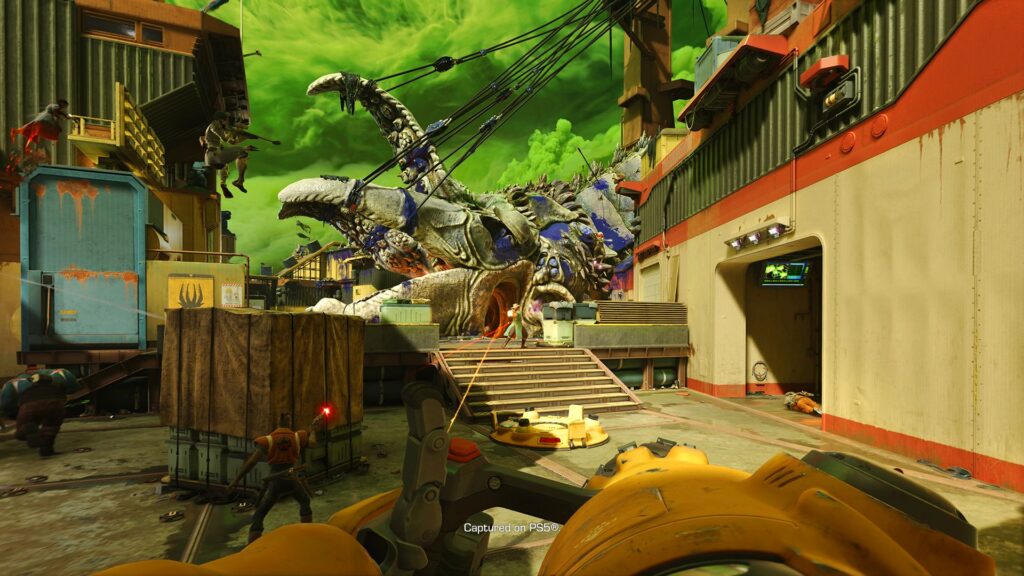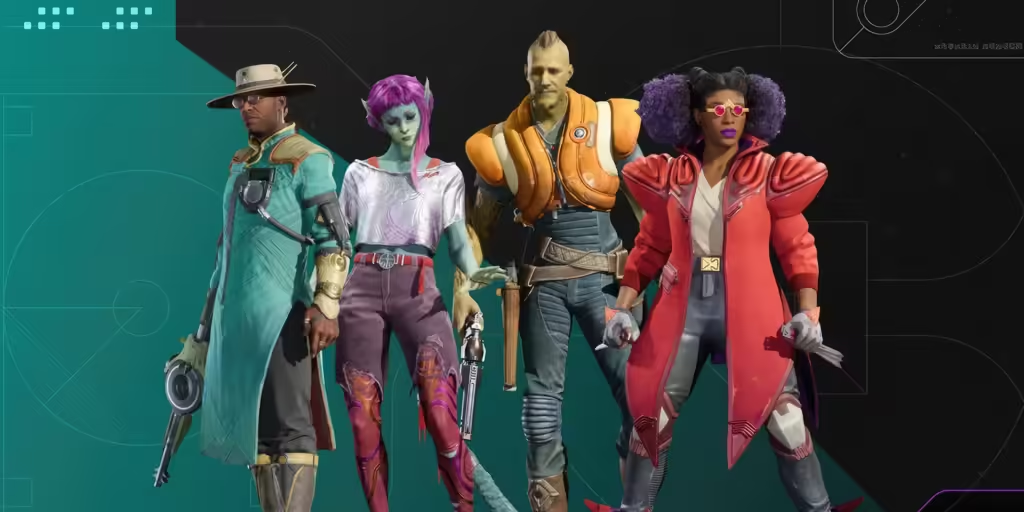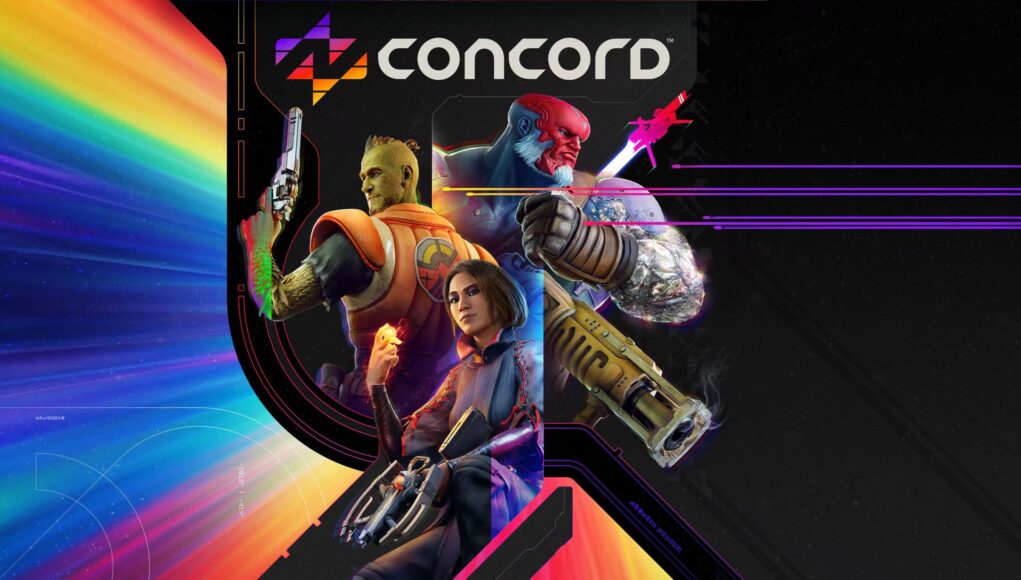In 2024, the challenge of launching a new live-service game is formidable, particularly when competing against established giants that offer a wealth of content for free. Concord, a multiplayer-only hero shooter, enters this crowded space with a $40 price tag and a release strategy that feels more appropriate for 2017 than today. Despite its merits, Concord struggles to justify its existence in an era where players have numerous free-to-play options that often provide more polished experiences and greater value.
Gameplay and Mechanics: The Good, the Bad, and the Unremarkable
At its core, Concord is a well-crafted shooter. The gunplay is punchy and satisfying, reminiscent of Destiny’s The Crucible, with a diverse roster of 16 characters, each offering unique abilities and playstyles. This variety ensures that no two fights are exactly the same, adding a layer of tactical depth to the gameplay. However, the game falters in communicating these abilities effectively to players. Too often, firefights end in confusion, with players left wondering what just happened due to a lack of clear indicators about what their opponents’ abilities actually do. This learning curve might deter many from investing the time needed to fully understand and appreciate the roster.

The game features six modes, split across three playlists, drawing inspiration from classic shooter staples like Team Deathmatch, Kill Confirmed, and Domination. While these modes are well-executed, they don’t offer much in the way of innovation, and the inability to queue for all modes at once or select a favorite diminishes the overall experience. Matches are short, with a standard Team Deathmatch ending after just 30 kills, which can make it difficult for players to fully experiment with different characters and strategies in meaningful ways.
A Cast of Characters That Fails to Shine
One of the critical areas where Concord stumbles is in its character design and narrative integration. While the game offers a diverse and inclusive roster, the characters themselves lack the distinctiveness needed to stand out in a genre where memorable heroes are crucial to a game’s success. Unlike the iconic Tracer or Widowmaker from Overwatch, Concord’s characters feel focus-tested to the point of blandness. Despite the variety in body types and personalities, none of the characters seem poised to capture the imagination of the community or inspire fan culture, such as cosplays or fan art.

This lack of memorable characters is exacerbated by the game’s failure to make their backstories easily accessible. While there is a Galactic Guide that contains a wealth of lore and backstory, it’s buried behind layers of gameplay, requiring players to unlock it by playing specific characters. Without an initial hook or easily accessible bios from the main menu, many players might not feel compelled to invest in the narrative, further distancing them from the game’s world.
Narrative Elements: Ambitious Yet Disconnected
Concord attempts to differentiate itself from other live-service shooters by placing a strong emphasis on narrative. Each season introduces new cutscenes designed to give players insight into the game’s world and its characters. These cutscenes are visually stunning, matching the quality of Sony’s renowned single-player experiences. However, their placement within the game feels awkward and disjointed. Players who haven’t followed the pre-release coverage may find themselves watching beautifully animated sequences that offer little context about the characters or the stakes of the world, leaving them more confused than intrigued.
The Galactic Guide, which logs the game’s events and lore in a sprawling map reminiscent of Mass Effect, is conceptually impressive and executed with care. However, its placement within the game seems more like an optional extra rather than an essential part of the experience. Players who are not inherently interested in lore might skip over it entirely, missing out on the story elements that could have deepened their connection to the game. Offering incentives, such as exclusive skins or customizations for engaging with the Galactic Guide, might have encouraged more players to explore this rich narrative resource.
The Price Tag and Release Strategy: A Misstep in the Current Market
Concord’s biggest hurdle, however, is not its gameplay or character design but its business model and release strategy. In a market dominated by free-to-play titles like Fortnite, Apex Legends, and Call of Duty: Warzone, asking players to pay $40 upfront is a tough sell. While the game does not include a paid season pass, opting instead for a cosmetic shop that will launch later, the initial cost of entry is likely to be a significant barrier for many potential players.
There’s something admirable about a developer asserting that their game is worth paying for upfront, but in the current landscape, where high-quality alternatives are available at no cost, it’s a difficult stance to maintain. The reality is that many players have become accustomed to getting more content for less money, and Concord’s pricing model may have been better suited to a different time.
A Solid Game in a Crowded Space
Concord is a competent and enjoyable shooter that shows flashes of brilliance in its gunplay and narrative ambition. However, these strengths are undercut by a combination of forgettable characters, awkward narrative integration, and a pricing model that feels out of step with current market expectations. Had it launched as a free-to-play title or been included in PlayStation Plus, Concord might have had a better chance of carving out a niche for itself. As it stands, it’s a good shooter that, unfortunately, feels divorced from the reality of its genre and the current gaming market.
In a world where live-service games are defined by their ability to attract and retain large player bases, Concord faces an uphill battle. While it’s a solid entry in the genre, it’s not extraordinary enough to overcome the challenges posed by its price and competition.










